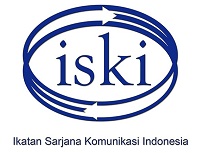Influencing factors of West Java higher education digital transformation
Abstract
Background: Digital transformation, in this sense, means incorporating digital technology into many aspects of higher education, including learning, teaching, administration, and research. Purpose: This research aimed to generate a framework that is more knowledgeable than it was by utilizing digital technologies. In education, digital evolution attempts to establish an effective pleasant learning environment for everyone involved in a Smart Learning Environment. Methods: It employed an explanatory database analysis with multiple linear regression to examine the influencing factors of West Java’s higher education digital transformation. Results: The results indicated that digital transformation promotes more efficient work. However, there are also disadvantages, including reduced versatility, increased levels of student participation, and greater interaction among universities. It assures that the technology is dependable, functional, and satisfies stakeholders’ requirements. As they must adjust to the digital age and incorporate new methods and practices, higher education institutions play a significant role in the transition of the educational field. Conclusion: In education, digital transformation has demonstrated positive impacts, such as faster and more efficient work processes and increased access to information. Digital transformation also presents negative aspects, such as loss of flexibility, increased student involvement, and increased interactivity between universities. Implications: The application of technology information systems in higher education is significant for developing the education system. Transforming information technology systems in higher education is a strategic and enlightening vision for organizations, increasing efficiency, productivity, and accessibility.
Keywords
Full Text:
PDFReferences
Abd-Rabo, A.M., Hashaikeh, S. A. (2021). The digital transformation revolution. International Journal of Humanities and Educational Research, 3(4), 124–128.
Alenezi, M. (2021). Deep dive into digital transformation in higher education institutions. Education Sciences, 11(12), 770.
Aljanazrah, A., Yerousis, G., Hamed, G., & Khlaif, Z. N. (2022). Digital transformation in times of crisis: Challenges, attitudes, opportunities and lessons learned from students’ and faculty members’ perspectives. In Frontiers in Education, 7.
Anggoro, S., Nurdin, D., & Sururi, S. (2023). Leading managing transformation to digital University in Indonesian Context. Jurnal Kependidikan: Jurnal Hasil Penelitian Dan Kajian Kepustakaan Di Bidang Pendidikan, Pengajaran Dan Pembelajaran, 9(3), 729-739.
Antonopoulou, H., Halkiopoulos, C., Barlou, O., & Beligiannis, G. N. (2021). Transformational leadership and digital skills in higher education institutes: During the COVID-19 pandemic. Emerging science journal, 5(1), 1-15.
Bisri, A., Putri, A., & Rosmansyah, Y. (2023). A systematic literature review on digital transformation in higher education: revealing key success factors. International Journal of Emerging Technologies in Learning (Online), 18(14), 164.
Branch, J. W., Burgos, D., Serna, M. D. A., & Ortega, G. P. (2020). Digital transformation in higher education institutions: between myth and reality. In Radical Solutions and eLearning: Practical Innovations and Online Educational Technology. Springer Singapore.
Bygstad, B., Øvrelid, E., Ludvigsen, S., & Dæhlen, M. (2022). From dual digitalization to digital learning space: Exploring the digital transformation of higher education. Computers & Education, 182, 104463.
Dung, B. X. (2021). Higher education and improving the quality of human resources today. European Journal of Human Resource Management Studies, 45–52. https://doi.org/10.46827/ejhrms.v5i2.1056
Field, J., & Merrill, B. (2010). Researching higher education access , retention and drop-out through a european biographical approach : Exploring similarities and differences within a research team European Society for Research on the Education of Adults Sixth European Research Conferen. 135230, 1–15.
Gruzina, Y. M Belogash, M. A. (2020). Leadership ideas shaped by digital insights in higher education. Management Science, 9(4), 75–84. https://doi.org/10.26794/2404-022x-2019-9-4-75-84
Haleem, A., Javaid, M., Qadri, M. A., & Suman, R. (2022). Understanding the role of digital technologies in education: A review. Sustainable operations and computers, 3, 275-285.
Jarvis, P. (2000). The changing university: Meeting a need and needing to change. Higher education quarterly, 54(1), 43-67.
Kaputa, V., Loučanová, E., & Tejerina-Gaite, F. A. (2022). Digital transformation in higher education institutions as a driver of social oriented innovations. Social innovation in higher education, 61, 81-85.
Karpov, E. S., & Karpova, E. G. (2022). Digitalization of Higher Education in the Context of Globalization. 9–19. https://doi.org/10.18502/kss.v7i2.10270
Khurniawan, A. W., & Erda, G. (2022). A second order confirmatory factor analysis of the digital transformation for a distance education institution. International Journal of Education and Practice, 10(4), 381-392.
Liu, J., Meng, B., Yang, M., Peng, X., Zhan, D., & Zhi, G. (2022). Quantifying spatial disparities and influencing factors of home, work, and activity space separation in Beijing. Habitat International, 126, 102621.
Nogovitsyn, N., Koloskov, A., & Balakireva, T. (2021). Management and digitalization in modern higher education. In 1st International Scientific Conference” Legal Regulation of the Digital Economy and Digital Relations: Problems and Prospects of Development”(LARDER 2020). 274-278. Atlantis Press.
Oey-Gardiner, M. (2018). Tantangan pendidikan tinggi indonesia di era disrupsi dan globalisasi. Sdg Center Unpad, 1-9.
Okoye, K., Hussein, H., Arrona-Palacios, A., Quintero, H. N., Ortega, L. O. P., Sanchez, A. L., & Hosseini, S. (2023). Impact of digital technologies upon teaching and learning in higher education in Latin America: an outlook on the reach, barriers, and bottlenecks. Education and Information Technologies, 28(2), 2291-2360.
Rodr, G. (2021). Assessing digital transformation in universities. MDPI, 1–16.
Saranakumar, AR., Ojha, M., Vinod, Malkar, B. D. (2022). Digital innovation, transformation and disruption of higher education.
Sumartias, Suwandi. 2019. Pengembangan sdm bidang komunikasi yang tersertifikasi profesi.
Shaheen, M. (2018). Digital communication technologies and leadership practice in higher education. http://search.ebscohost.com/login.aspx?direct=true&db=sph&AN=119374333&site=ehost-live&scope=site%0Ahttps://doi.org/10.1016/j.neuron.2018.07.032%0Ahttp://dx.doi.org/10.1016/j.tics.2017.03.010%0Ahttps://doi.org/10.1016/j.neuron.2018.08.006
Shrivastava, S. K., & Shrivastava, C. (2022). The impact of digitalization in higher educational institutions. 2307(2), 7–11. https://doi.org/10.35940/ijsce.B3536.0111222
Tungpantong, C., Nilsook, P., & Wannapiroon, P. (2022). Factors influencing digital transformation adoption among higher education institutions during digital disruption. Higher Education Studies, 12(2), 9-19.
DOI: https://doi.org/10.24198/jkk.v12i2.58515
Refbacks
- There are currently no refbacks.
Copyright (c) 2024 Suwandi - Sumartias

This work is licensed under a Creative Commons Attribution-NonCommercial-ShareAlike 4.0 International License.
Jurnal Kajian Komunikasi Indexed by:
Editorial Office of Jurnal Kajian Komunikasi:
Faculty of Communication Science, Universitas Padjadjaran
Jl. Raya Bandung-Sumedang Km. 21 Jatinangor, Sumedang 45363, Indonesia
WA: +6282316731181 (Chat Only)
Telephone: +62227796954
Faxmile: +62227794122
E-mail: jurnal.kajian.komunikasi@unpad.ac.id
Jurnal Kajian Komunikasi Supervised by:











